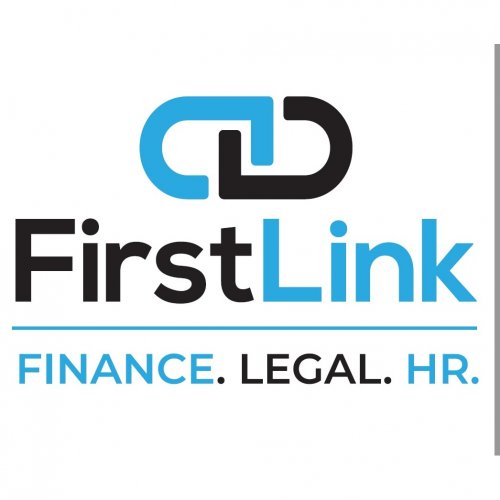Best Employment Rights Lawyers in Trinidad and Tobago
Share your needs with us, get contacted by law firms.
Free. Takes 2 min.
Or refine your search by selecting a city:
List of the best lawyers in Trinidad and Tobago
About Employment Rights Law in Trinidad and Tobago
Employment Rights Law in Trinidad and Tobago is designed to protect both employees and employers by establishing fair and equitable labor practices. The primary legislation governing employment rights includes the Industrial Relations Act, the Minimum Wages Order, and the Occupational Safety and Health Act. These laws and regulations set standards for working conditions, wages, discrimination, and the resolution of employment disputes.
Why You May Need a Lawyer
Individuals may require legal assistance in employment rights for various reasons, including:
- Unfair dismissals or wrongful termination.
- Wage disputes or issues related to unpaid overtime.
- Discrimination or harassment in the workplace.
- Violation of employment contracts.
- Health and safety concerns not being addressed by the employer.
- Retrenchment or redundancy issues.
- Navigating the complexities of workplace policies and procedures.
Local Laws Overview
Understanding the key aspects of employment law in Trinidad and Tobago can help both employers and employees ensure compliance:
- Industrial Relations Act: Governs the relationship between employers, employees, and trade unions, and establishes the Industrial Court for resolving disputes.
- Minimum Wages Order: Specifies the minimum wage and working conditions requirements to ensure fair compensation for all workers.
- Occupational Safety and Health Act (OSHA): Provides regulations to ensure safe working conditions for employees.
- Equal Opportunity Act: Prohibits discrimination based on race, gender, religion, or disability in employment.
- Retrenchment and Severance Benefits Act: Regulates severance and benefits in instances of redundancy.
Frequently Asked Questions
What are my rights if I am unfairly dismissed?
Employees who believe they have been unfairly dismissed can seek recourse through the Industrial Court, which may grant compensation, reinstatement, or other remedies.
How is the minimum wage determined and enforced?
The Minimum Wages Order sets the legal minimum wage, which employers must adhere to. The Ministry of Labour is responsible for enforcement.
What steps should I take if I face workplace discrimination?
Report the issue to your human resources department and seek advice from the Equal Opportunity Commission or a lawyer for further action.
How can I report unsafe working conditions?
You can report unsafe conditions to your employer, and if they are not rectified, escalate the issue to the Occupational Safety and Health Agency.
Are employers required to provide contracts of employment?
Yes, employers must provide written contracts outlining the terms of employment. This serves as a legally binding agreement between both parties.
What are my entitlements if I am made redundant?
Under the Retrenchment and Severance Benefits Act, you may be entitled to a severance package based on your length of service and contractual terms.
What does the Equal Opportunity Act cover?
The act covers discrimination based on race, gender, religion, ethnicity, geographical origin, and disability in employment and other areas.
How can disputes between employers and employees be resolved?
Disputes can be resolved through internal grievance procedures, mediation, or by approaching the Industrial Court for adjudication.
What are the maximum working hours in a week?
The standard work week is generally 40 hours, but this can vary depending on the industry and specific employment contracts.
Is overtime pay mandatory?
Yes, employees working beyond the stipulated working hours are typically entitled to overtime pay as outlined in their employment contract or collective agreements.
Additional Resources
For more information or assistance, consider reaching out to the following resources:
- The Ministry of Labour
- The Industrial Court
- The Occupational Safety and Health Agency (OSHA)
- The Equal Opportunity Commission
- Legal Aid and Advisory Authority
- Trade Unions
Next Steps
If you require legal assistance in employment rights, consider taking the following steps:
- Gather all relevant documentation related to your employment issue, such as contracts, correspondence, and evidence of disputes.
- Consult with a lawyer specializing in employment law to discuss your situation and explore potential legal options.
- File necessary complaints or claims with appropriate agencies such as the Equal Opportunity Commission or the Industrial Court, if advised.
- Stay informed about your rights and obligations under the current employment laws and policies in Trinidad and Tobago.
Lawzana helps you find the best lawyers and law firms in Trinidad and Tobago through a curated and pre-screened list of qualified legal professionals. Our platform offers rankings and detailed profiles of attorneys and law firms, allowing you to compare based on practice areas, including Employment Rights, experience, and client feedback.
Each profile includes a description of the firm's areas of practice, client reviews, team members and partners, year of establishment, spoken languages, office locations, contact information, social media presence, and any published articles or resources. Most firms on our platform speak English and are experienced in both local and international legal matters.
Get a quote from top-rated law firms in Trinidad and Tobago — quickly, securely, and without unnecessary hassle.
Disclaimer:
The information provided on this page is for general informational purposes only and does not constitute legal advice. While we strive to ensure the accuracy and relevance of the content, legal information may change over time, and interpretations of the law can vary. You should always consult with a qualified legal professional for advice specific to your situation.
We disclaim all liability for actions taken or not taken based on the content of this page. If you believe any information is incorrect or outdated, please contact us, and we will review and update it where appropriate.
Browse employment rights law firms by city in Trinidad and Tobago
Refine your search by selecting a city.













